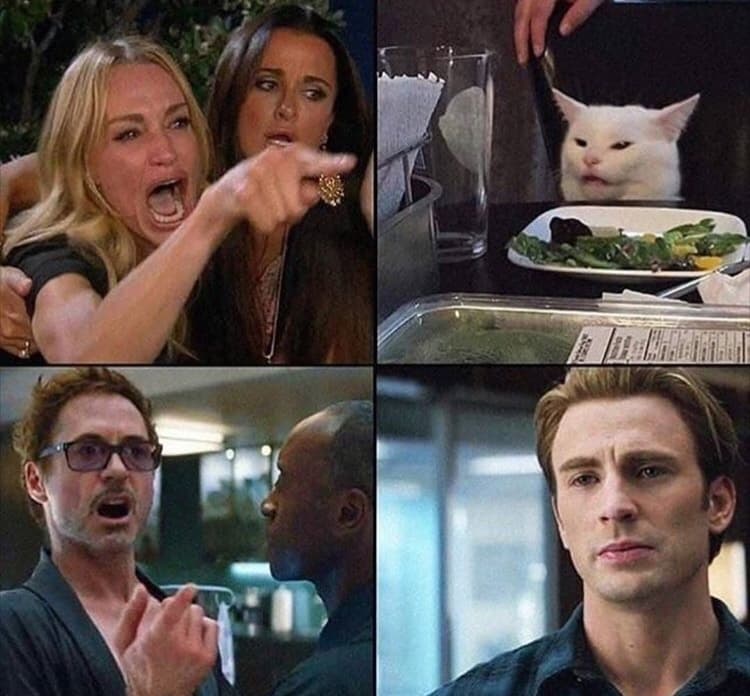If you enjoy this post, please retweet it.
June 30 was the first ComicBook.com quarantine watch party in quite some time. As always, I made a few more Twitter connections through the conversations that came from it. These conversations inspired three posts for my blog. This is the second one that in some sense serves as a sequel to the first one.
I must admit that I’m a little out of my element. As I said in the prior Iron Man-related post, I don’t analyze these movies from the perspective of an expert in screenwriting. I focus on themes that are important to me. This post eventually strays into an analysis of moviemaking and human relationships, so I have far more questions than I have answers, and my affirmative claims are often mere speculation. My primary question is: What purpose to the larger story did Pepper’s naivete and/or stubbornness serve?
Here’s what I’m talking about:
In other words, there are several incidents throughout the MCU where Pepper makes the same mistake that many people make in the real world. She tries to interfere with a strong person doing what’s necessary because she doesn’t understand what strength of character is, or at least why it’s important. As shown in Shazam!, attitude is often far more important than actual ability, which is why even in the non-caveman, modern world, strength is an important feature. While Pepper is a hard worker, intelligent, and portrayed as strong in other ways, that’s not a realistic portrayal. She’s simply serving a plot, so the script has her acting both strong and weak at different points.
While we all have our strengths and weaknesses, this paradox is far more profound than that. She doesn’t get a simple reality that, again, I’ve seen a lot in the real world: Telling Tony not to act because it places him at risk is counterproductive. If he doesn’t act, the bad guys will win, and Tony will die anyway (along with many other people). This is absolutely maddening, and it happens during Paltrow’s entire tenure in the MCU. At the end of Iron Man 3, Tony temporarily gives up being Iron Man for her. Fortunately, real world economics prevail, and the screenwriters quickly send Tony back into the fray to save half the universe. But the point is that, if you’re weak, that’s fine, but don’t stand in the way of the strong. They have a job to do, and it’s generally saving your ass.
How Did the Relationship Work?
Sorry, but my writing gets a little choppy here because I’m suddenly shifting gears.
I’m light years from my area of expertise, but perhaps Stark latched onto a person with such a silly outlook because her motivation was seemingly unconditional love, and that’s what he was searching for. According to Captain America: Civil War, he lost that relationship for a while, but as soon as he could, he grabbed her and didn’t let go. As I speculated in the prior Iron Man-related post, that’s probably because Tony’s lack of a family was haunting him (as it often haunts me). Or maybe it’s far simpler: Opposites attract. Because it’s just a movie, they were able to write the script anyway they wanted, so the resulting relationship with Pepper worked even if it wouldn’t in the real world, which wouldn’t be so generous. (For the record, Civil War screenwriter Stephen McFeely stated that her presence would have calmed Tony, but he needed to remain dark and angry in order for the events to play out as they did.) Tony never got “fixed’ by anything we saw on screen; the script just pushed him in that direction leaving the details to our imagination (other than the unwitting therapy session with Bruce Banner in Iron Man 3). Figuring out why is merely speculation. As complex as some of these MCU characters are relative to other movie characters, they’re still not real. They’re just two-dimensional characters driven more by dramatic forces than by real, psychological or logical ones.
It appears that Pepper’s behavior always served to advance the plot. She could hold Tony back or push him forward as needed, but she usually held him back. When she did so, her thought processes were wildly illogical, and that grated on me.
I don’t want to hate Pepper Potts, but I do. There. I said it.
Follow me on Twitter @gsllc (please retweet!)
Follow ComicBook.com @ComicBook
Follow Brandon Davis @BrandonDavisBD
Follow Angela Rynan Durrell @Rowaenthe
Follow Robert Downey Jr. @RobertDowneyJr







